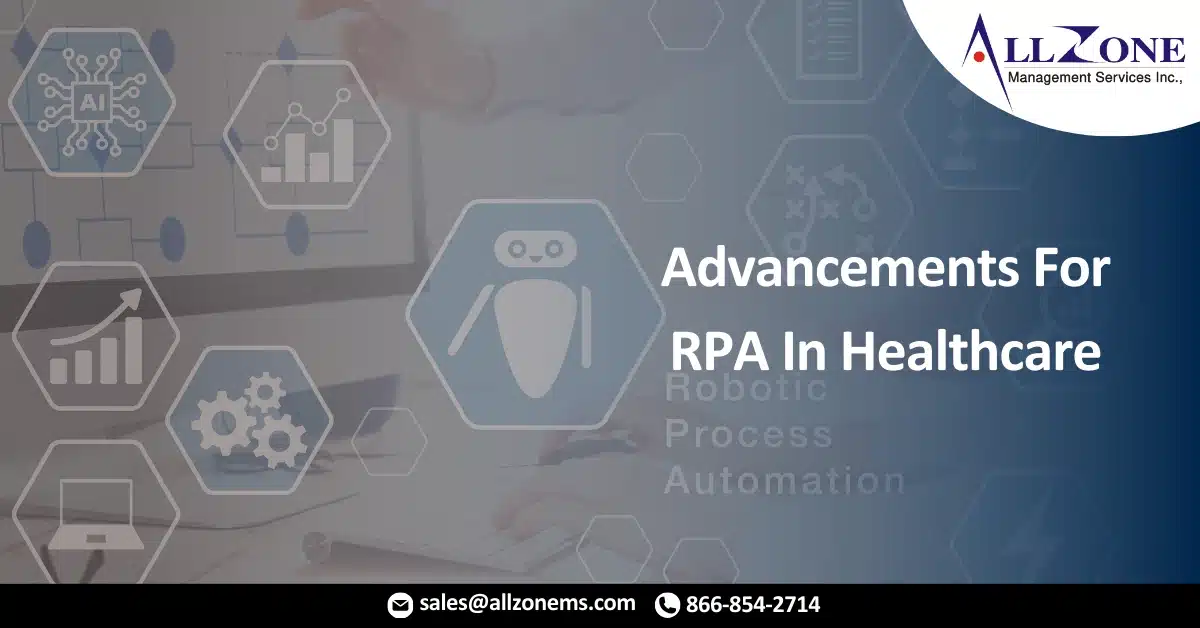Healthcare organizations are increasingly becoming conscious about improving costs as well as the quality of service to consumers.
Technology is growing at an unimaginable speed and the impact it has on every sector is unfathomable. A report by Global market insights pegs the growth of the Robotic Process Automation (RPA) market to reach $5bn by 2024. According to this report, the healthcare segment specifically is expected to be one of the fastest-growing sectors over this forecast period.
Healthcare organizations are increasingly becoming conscious about improving costs as well as the quality of service to consumers. In India, a key challenge organizations face is managing and processing the information they currently possess as physical documents or paper trails. This includes information from internal and external sources, billings, claims management, patient enrollment, reports, etc. Integration of this data can help healthcare organizations identify existing gaps across all processes and automate mundane, repetitive tasks as well.
Currently, several leading healthcare organizations globally are piloting RPA in healthcare initiatives while working on integrating RPA tools within their existing IT environments. Primary RPA use cases in healthcare are centred on improving throughput, reducing manual effort and efficacy of standardized, large-scale processes. For example, speeding up claims data processing and claims management for insurers, lowering FWA (fraud, waste and abuse) in claims management and sharing information with patients, setting appointments and improving patient engagement using chatbots. RPA in healthcare, along with cognitive automation can help accelerate patient support in various channels to speed up clinical support, monitoring medical lapses, and feeding information the patients are looking for.
A leading U.S. revenue cycle management (RCM) service provider leveraged an RPA solution that fully automated the service provider’s complete eligibility and benefits confirmation process. The system, running 22 hours a day, five days a week had 23 software bots automatically extract patient appointment lists from each healthcare provider’s practice portal across all provider locations, prioritize the appointments for further processing and extract appointment details by accessing different applications and screens. This further led to consolidated output reports to confirm whether patients are eligible for benefits and validate and update eligibility and benefits details in each portal.
In another deployment, a hospital in Texas was challenged with the anticipated need to increase staffing from 350 professionals to more than 1,100 in less than a year. They streamlined processing of their monthly data load that was error-prone, time-consuming and costly, all with the use of RPA. The deployment also enabled them to validate payment accuracy on test claims, manage and monitor day-to-day activity and process the low-to-medium complexity work, that signifies majority of claims collected and tuned it to process many common controls.
Another successful utilization of RPA was used for direct data capture deployment to connect disparate data systems. The solution automates the extraction of all provider information from the customer’s system into a unified spreadsheet for easy lookup. A software bot was deployed to update new provider information daily. All information was uploaded into a single view within the interface, that resulted in simplified data storage and retrieval, reduced workforce demand and flexible, scalable bot deployment.
A downside of leveraging RPA in healthcare is that it can only process structured data and work with a rule-based approach. However, with the help of cognitive technologies and machine learning in healthcare, RPA in healthcare can process unstructured data and make informed decisions.
The future of healthcare could look very different when technologies like RPA in healthcare come into play. Automating routine tasks could reduce task time and eliminate manual errors while improving the patient experience. As organizations progress from depending on manual tasks to applying RPA and cognitive computing, the workforce also shifts from being “doers” to “reviewers.” Health IT leaders and providers should focus on developing proactive, winning strategies to attain long-term financial sustainability and improved patient experience.
As RPA is emerging as the most affordable and flexible option, India is poised to appear as a front-runner in its establishment and benefit significantly from this opportunity.
For More Information: https://health.economictimes.indiatimes.com/news/health-it/advancements-for-rpa-in-healthcare/70358766

